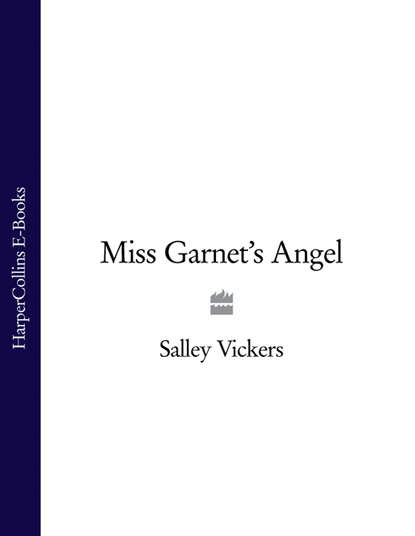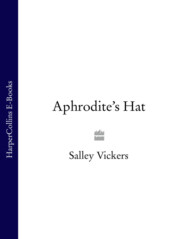По всем вопросам обращайтесь на: info@litportal.ru
(©) 2003-2024.
✖
Miss Garnet’s Angel
Автор
Год написания книги
2019
Настройки чтения
Размер шрифта
Высота строк
Поля
William Blake. Years ago she had been invited to contribute a chapter on Blake for a book on Radical Thinkers but somehow the project had never got off the ground. William Blake had been a revolutionary but had he not also been whipped by his father for seeing angels in the trees? Oro pallido, she thought to herself, crossing, in the lowering light, the bridge where Nicco had sped before her. This was not a morning sun on fire, like Blake’s, but pale wintery gold–oro pallido.
The letters which had been delivered from England were from Brown & Noble, the estate agents who had let the flat, and her friend, Vera Kessel. Vera, a fellow member of the Communist Party, had been at Cambridge with Julia Garnet. They had not been close as students but a few years later had recognised each other at a Party meeting and, thereafter, had occasionally gone on holidays to Dubrovnik or to the Black Sea together. The holidays had been bleak affairs, nothing like the trips Harriet had planned for their retirement.
The letters had been, in fact, forgotten until looking for her left glove she found them stuffed into the pocket of her coat. She opened them while the kettle boiled for tea.
Dear Miss Garnet,
This letter confirms a tenancy of six months to Mr A. D. Akbar at a rental of £1,200 p.c.m. We remind you of our terms of 12% to include insurance and collection fees. £1,006.00 (plus one month’s deposit) has been transferred to your account today and thereafter £1,006.00 until 3 June. Trusting in your continued satisfaction.
Yours etc.
‘To the eye of a Miser a Guinea is more beautiful than the Sun,’ murmured Miss Garnet, recalling some more of the words of the visionary poet which had come to her by the canal, and she opened the other envelope.
Dear Julia,
Just a brief card to wish you well in benighted Italy! How are you getting along with the RC God squad? Pretty oppressive I should imagine but I hope the history makes up for it.
We had a disappointing meeting about the unions last week. Ted spoke well as usual but much of the life has gone out of the comrades. All send greetings and solidarity.
Best, Vera.
For a moment Julia Garnet remembered the impoverished little ceremony with which she had bidden Harriet a final farewell, and the utilitarian stone with the severely practical information carved upon its stony face, with which she had chosen to mark the passing of her closest friend’s life. She wished now she had paid the funeral more attention. Harriet’s large, mild face hovered before her–somehow she could not quite get used to the idea that Harriet was no more.
She turned down the flame beneath the saucepan of water and added two tea bags. The kitchen was equipped with neither kettle nor teapot. At first she had minded, her cup of tea being a regular point in her routine, but now she enjoyed the slightly Bohemian feel to her saucepan tea-making. No ‘love’ in Vera’s letter. After nearly forty-five years’ acquaintance ‘Best’ was all Vera could manage.
The following morning Julia Garnet, this time with the Rev. Crystal in the pocket of her tweed coat (‘For really I must,’ she insisted to herself, ‘find out about this city’), returned to the basilica of St Mark. She entered not by the main door but by a less frequented doorway on the north side. It did not deter her that this side-slip into the cathedral was marked ‘Per Pregare’–‘For Prayer’.
Inside, by long, hanging red and silver lamps, a door was open onto a side chapel. With no special thought in her mind she entered.
About a dozen people sat, in the vaulted, ancient-looking surroundings, listening to a priest reading from a leather book. Julia Garnet looked around. At one end of the chapel a blue mosaic of a huge Madonna gazed down; at the other, a tomb on which rested an inclined marmoreal figure observed by an angel. Twelve candles burned on the table before the tomb.
The priest came to the end of his reading and sat down. There was a pause during which Julia Garnet waited for something to happen. After a while it became apparent that nothing was going to happen, except the silence.
Her first response was annoyance. The Vespers in St Mark’s had been dramatic: the flute voices of the clerics, the melodic bells, the incense, the enthralling rhythmic passing and return of the litany-chant thrown between priest and congregation–compared with the threnodic splendour of all that, this abrupt nothingness felt like a cheat. But after a while she began to enjoy the silence. She looked round at the mosaics which seemed to depict some awful martyrdom–certainly there was a body and a tomb and, yes, surely that was the same body being removed from the tomb, and here how eagerly it was being hauled away. There was a kind of ebullience in the narrative which she made out on the chapel walls as if the dead man had, if not enjoyed, at least participated energetically in his own persecution.
She twisted her neck to look back at the blue Madonna and found a man in a serge suit staring beadily at her, as if his was the task of checking her credentials to be present at the ceremony and was hopeful of finding them wanting. Abashed, she turned from the Madonna to examine the other attenders.
All were women and one, two, three, four, five, six–no seven of them in furs. Now there was a thing! Feeling in the pocket of her own tweed she remembered Vera’s letter and almost she started to laugh. What would Vera make of her sitting here in church among seven furs? And which would Vera abhor most? The chapel or the wealth? All the furs were elderly save one: a woman with a long daffodil pony-tail and high gold heels. ‘Tarty,’ Harriet would have called her. (Vera very likely would not have known how to use the word.) But Mary Magdalene had been a tart, hadn’t she? It was surprising how much you remembered of your school scriptures, thought Julia Garnet.
There was a disturbance now at the door and three nuns dressed in white robes entered. They looked like an African order with their smooth brown skins–but so young! The nuns, and really they were no more than children, heavily crossing themselves knelt, so that Julia Garnet could see their thick-soled boots. Now one of them was elaborately prostrating herself and kissing the ground while the grave fur-clad ladies sat decorously in impeccable silence. How irritating the young nuns were, and how out of place the kissing and the boots amid the unspeaking elegance. She was relieved to see them depart, noisily snatching at the water in a carved high stoup by the door. Around the bowl more angels.
One of the silent furred ones was wearing a wide-brimmed emerald hat. The woman was no younger than herself and Julia Garnet found she wanted just such a hat too. But surely this was not what the silence was for? Designing a wardrobe! Gently, like dripping honey, the quiet filled her pores, comforting as the dreamless sleeps she had fallen prey to. The angel over the inclining man gestured at the heavens; beneath him, another angel on the tomb looked with all-seeing, sightless eyes towards the angels on the holy-water stoup…I see an Innumerable company of the Heavenly host crying, ‘Holy, Holy, Holy!’…The silence was holy. What did ‘holy’ mean? Did it mean the chance to be whole again? But when had one ever been whole? Silently, silently the priest sat and in the nameless peace Julia Garnet sat too, thinking no thoughts.
A slight stir on her right and someone had entered and was wanting to take the place beside her. A man crossing himself, but discreetly, thank God. Removing the Rev. Crystal from the seat she smelled tobacco and instantly her father was there, not in the days when he would remind her that cleanliness was next to godliness but in those last days when he was losing his mind and could smoke only under supervision. She had had to apologise to the nurses. ‘I am so sorry, he doesn’t know what he is saying,’ she had said, hearing with shame her self-righteous father’s demonic curses. And they would smile and tell her not to worry, it was all in a day’s work. But he did know what he was saying, Julia Garnet thought. And the nurses knew he knew.
And now the priest had risen to his feet and they were all on their feet a little after him and a man with a bell had arrived and incense. Fervently, praise was given to ‘Signore’, (how nice that God should be a humble mister!) and there was singing and the amen. And then the furs were chatting to each other while she stood and drank in the blue Madonna and her stiff, truthful baby.
‘You like our treasures?’
It was the man who had sat beside her.
‘How did you know I was English?’
As if it were a reply the man said, ‘I have friends in England.’ Then, nodding at the mosaics, ‘Do you know the story?’ and enlivened for her the story of the removal of the saint’s remains. ‘We Venetians always take what we want,’ he laughed, and his eyes crinkled; a tall man, with white hair and a moustache.
Coming down the steps beside her into the darkening Piazzetta he said, ‘Look, another example of our looting,’ pointing to the two high columns. ‘St Theodore with his crocodile was once our patron saint. But in fact this is not St Theodore at all–it is a Hellenistic statue which we have taken for our own. And opposite, you see, the lion of St Mark is not a lion at all–a chimera from the Levant we stuck wings on. All stolen! The columns too. Would you honour me by taking a glass of prosecco, perhaps?’ and he smiled, so that she omitted to say she had suddenly remembered she had left the Rev. Crystal behind on the chapel floor.
Instead, why not? she decided, for no one waited for her return but aloud she said merely, ‘Thank you very much. That would be delightful.’ and felt proud of herself that she had added no objection.
‘Good. I take you to Florian’s.’
‘But is this not very expensive?’ she could not prevent herself saying ten minutes later, as they sat, all gilt fruit and mirrored warmth, under the wreathed colonnades surrounding the Piazza.
‘But of course!’ The man who had introduced himself as Carlo crinkled his eyes again. ‘Next time I shall take you to the bar where the gondoliers meet. But for a first meeting it must be Florian’s.’
Julia Garnet felt something she had felt previously only under pressure or fear. It was as if the bubbles in the pale gold glass had passed through her stomach up into her heart. ‘Oro pallido,’ she said speaking the words aloud.
Her companion frowned. ‘Excuse me?’
‘Oh, I’m so sorry. I was trying to say the words for pale gold–the drink. It is delicious.’
‘Ah! Oro pallido, I did not understand. Prosecco is our Italian secret. I think it is nicer than champagne but my French friends will kill me if they hear this!’
‘Your English is very good.’
He was, he explained, an art historian, who had worked at the Courtauld Institute in London for several years. Now he was a private art dealer, buying and selling mainly in Rome, a little in London, sometimes Amsterdam. But Venice was his home. His mother was dead but he had kept on her old appartamento–he returned when he could–he had cousins, an aunt.
‘And you?’ he asked. ‘You have a husband, children?’ and she was grateful for she felt sure he could see that she did not. ‘But what a shame!’ He spoke lightly. ‘You are such a pretty woman,’ and she hardly blushed at all but said, ‘Thank you very much,’ gravely, as if he had opened a door for her, or gathered up a dropped parcel. And she did not ask if he were married.
Carlo asked where she was staying and she explained about Signora Mignelli and the Campo Angelo Raffaele. Perhaps it was his enquiry about the husband and children she did not have which found her telling him also about Nicco. ‘I seem to have acquired a young pupil here,’ unaware of the covert pride in her voice. And when he nodded and smiled encouragingly, ‘I am teaching him English,’ she explained, conscious of some exaggeration in this claim, for Nicco so far showed little enthusiasm for learning her language.
Carlo, however, listened with polite attention. He gave her his card, and insisted on escorting her home by the vaporetto which dropped them at S. Basilio, the stop nearest to her new home.
‘I won’t ask you in.’ Julia Garnet spoke carefully. The combination of the water-journey and the prosecco had gone to her head (that was twice in two days she had been tipsy). ‘I have nothing to offer you but tea and I am sure you have a supper to go to.’
‘Another day I should be charmed. You stay in one of the most beautiful campi in Venezia!’
Easy, murmured Julia Garnet inwardly, and she thanked her handsome host and hurried across the bridge past Veronese’s church where they were too poor to have a sacristan. ‘Easy, girl,’ she said aloud later, taking off her stockings. It was a manner of address the rag-and-bone man, who had driven about Ealing when she was still a young teacher, had used to his horse. A white horse, called Lily, she seemed to think, as she stood, barefoot on the cold floor, running a bath.
The following morning, passing the side-door of the chiesa, she saw a man with an oversized key unlocking the church.
In reply to her finger pointing questioningly at the interior, he indicated that she should enter. ‘Prego!’ He shuffled ahead of her, attending to duties in the dimness of the interior.
One by one small pools of illumination flicked on and Julia Garnet stood amid the gathered half-light. She turned around. It was the first time she had been in a proper church (you couldn’t really count St Mark’s) since she didn’t know when. The funeral of a colleague at school in an ugly C. of E. church in Acton; that must have been the last time. And how cold it had been then, and how she had resented the Actonish odour of bourgeois sanctity. But why was this different? For a second her mind flickered guiltily to the Reverend Crystal. He, to be sure, would have had safe and solid information to convey on such points.
She sniffed the hazy air. The odour here was dry and musty too but there was a fragrance about it. How sensible to scent your place of worship. The incense, of course, it was the incense, like the frankincense brought by one of the kings. Gold, frankincense and myrrh. Were there reasons for the gifts? She couldn’t remember.
The sacristan came forward now, pointing to an organ above the door which opened on to the water-front and then at an assortment of leaflets on a small table. To please him she picked one up from the pile marked ‘English’. ‘Tobiolo and the Angel Raffael.’ Looking up, painted on the organ loft, she saw an angel with azure wings.











